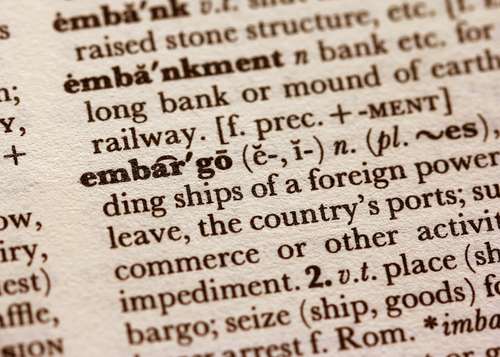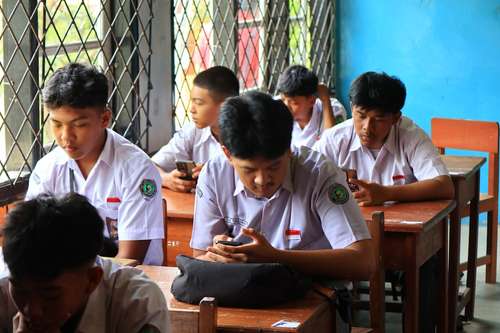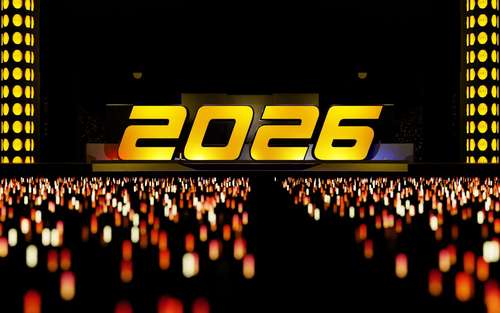Gen Z lingo is rocking the boat in the world of language, and if you’ve been paying attention online, you know this isn’t just a passing trend. The Merriam-Webster Dictionary has decided to update its latest edition to include favorite new slang words like 'rizz', 'dad bod', and 'doomscroll'. This isn’t a small step; it’s a giant leap that reflects how youth language is driving modern vocabulary changes. It feels as if the dictionary itself is having a midlife crisis, reinventing its identity in the digital age.
It might seem surprising at first – after all, dictionaries have long been seen as the guardians of proper language. But language evolution is dynamic, much like a river that carves out new paths over time. With Gen Z culture at the helm, the introduction of these new dictionary entries represents a larger trend of linguistic changes that are unfolding right before our eyes. Every time we scroll through our feeds, we’re seeing evidence of how conversational language shifts, especially with terms gaining rapid traction online.
There’s a sense of excitement in blending traditional language with evolving word trends. We’re not just talking about random fads; these are terms that have been widely embraced by millions of young people who are shaping a new era of cultural trends. Some might wonder, “Why is this happening now?” It’s simple: our digital era and social media platforms have turbocharged communication in ways no one could have predicted even a decade ago.
The Rise of Gen Z Lingo in Everyday Conversation
We've seen an explosion in new slang words that feel both relatable and effortlessly cool. In just a few years, Gen Z lingo has permeated everyday conversation, infiltrating both casual chats and even formal discussions. This section dives into just how integral these new terms have become in our daily lives.
The inclusion of words like 'rizz' in the Merriam-Webster Dictionary underscores a broader cultural shift. What once was a set of niche terms now stands shoulder-to-shoulder with age-old entries. Imagine the surprise when your favorite quirky word finally wins its place in a dictionary that has been a benchmark for proper English since time immemorial. That moment is much like watching your favorite indie band headline a major music festival.
Many of us have witnessed this transformation firsthand. Whether you’re catching up with friends over coffee or scrolling through trending topics, the use of these slang terms communicates more than just basic ideas—it carries cultural significance and a trace of generational identity. The dictionary update isn’t merely an academic exercise; it’s a cultural phenomenon that validates everyday language. It’s as if the very gatekeepers of language have thrown open their doors to welcome modern vocabulary without judgment.
Navigating Language Evolution in the Digital Age
The rapid pace of online communication has played a massive role in this transformation. Before we knew it, platforms like TikTok, Twitter, and Instagram were incubating new word trends at an incredible speed. This section talks about how digital technology is changing the rules of language evolution and why a dictionary update like this is significant.
The digital age has turned everyone into a potential lexicographer, with the power to coin and popularize terms in real time. Gen Z lingo thrives in the fast-paced world of memes and viral challenges, where brevity and impact are key. Think about it – a simple text post or a quick video clip can launch a word into public consciousness overnight. With terms like ‘doomscroll’ gaining traction, it’s clear that our communication is as much affected by our screens as it is by our offline experiences.
The Merriam-Webster Dictionary’s decision to incorporate new slang words is more than a nod to language evolution; it’s an acknowledgment of the real and persistent influence of the online world. As anyone who has spent time on social media can attest, language today can be as fluid and ephemeral as the digital trends that define our era. In a way, each new entry in the dictionary is a historical record of our times—a snapshot of cultural and linguistic change that future generations will look back on as emblematic of our period.
This evolution isn’t without its detractors. Some traditionalists argue that including casual slang in a formal reference source muddies the clarity of communication. Yet, for many, these words capture the spirit of contemporary life in a way that staid, old-fashioned vocabulary simply cannot. As we navigate this era of rapid change, it’s comforting to see a balance between preserving classic language forms and embracing the dynamic energy of youth language.
Cultural Impact and the Future of Slang Terms
Culture and language have always danced in tandem, and the surge of Gen Z lingo in the Merriam-Webster Dictionary is a vivid illustration of that relationship. This section explores the lasting effects of generational language on society and speculates on what might come next.
Every new dictionary entry is a testament to the shifting cultural tides. It’s like finding a piece of modern art in an old gallery – unexpected, vibrant, and full of life. The rise of slang terms such as those popularized by Gen Z not only highlights current ensconced cultural trends, but it also paves the way for future linguistic exploration. The dictionary update is a form of cultural validation, showing that what might have started as playful banter now holds weight in academic and social discourse alike.
The impact of these modern vocabulary choices stretches far beyond casual conversation. They are reflective of a broader rebellion against the conventional, a way for younger generations to express their individuality in an increasingly standardized world. The inclusion of these terms in such a venerable source as the Merriam-Webster Dictionary signals that linguistic innovation is here to stay, and its influence will likely ripple through generations.
Looking ahead, one can only wonder how many more new dictionary entries will emerge from the ever-changing cauldron of popular slang. Will we see more words inspired by digital culture, or perhaps a blend of dialects that reflect our globalized society? Just as the dictionary update celebrates current trends, it also hints at a future where language is even more inclusive and adaptive. Every time you use a new word in conversation, know that you’re contributing to a living, breathing record of our society’s evolution.
In wrapping up, it’s clear that this isn’t just about adding words to a dictionary—it’s about recognizing the language of our time. The fast-paced world of digital communication, cultural shifts, and youthful innovation has given rise to Gen Z lingo that is as impactful as it is creative. The Merriam-Webster Dictionary has taken an important step by incorporating these new slang words, ensuring that their legacy is preserved for future generations to understand the full picture of our modern vocabulary. It's an exciting reminder for all of us that language, like life, is always evolving.
So next time you drop a casual line peppered with trendy slang, remember that you’re part of a vibrant evolution of language. Who would have thought that a dictionary update could feel this refreshing and contemporary? It only goes to show that even the most established institutions are embracing change in a world that never stops speaking in new words!




